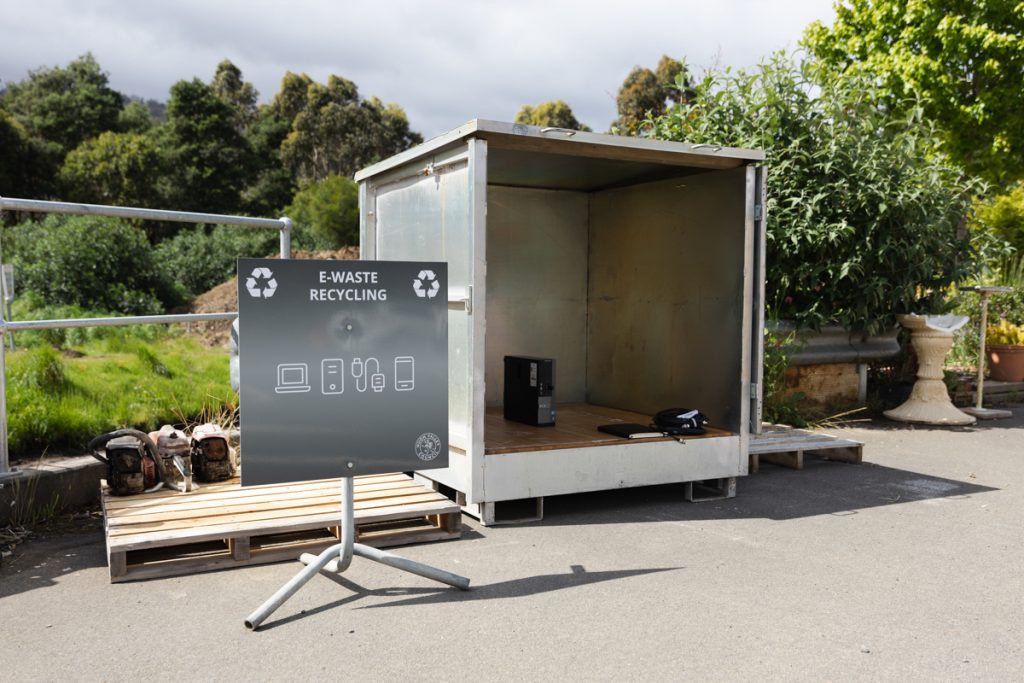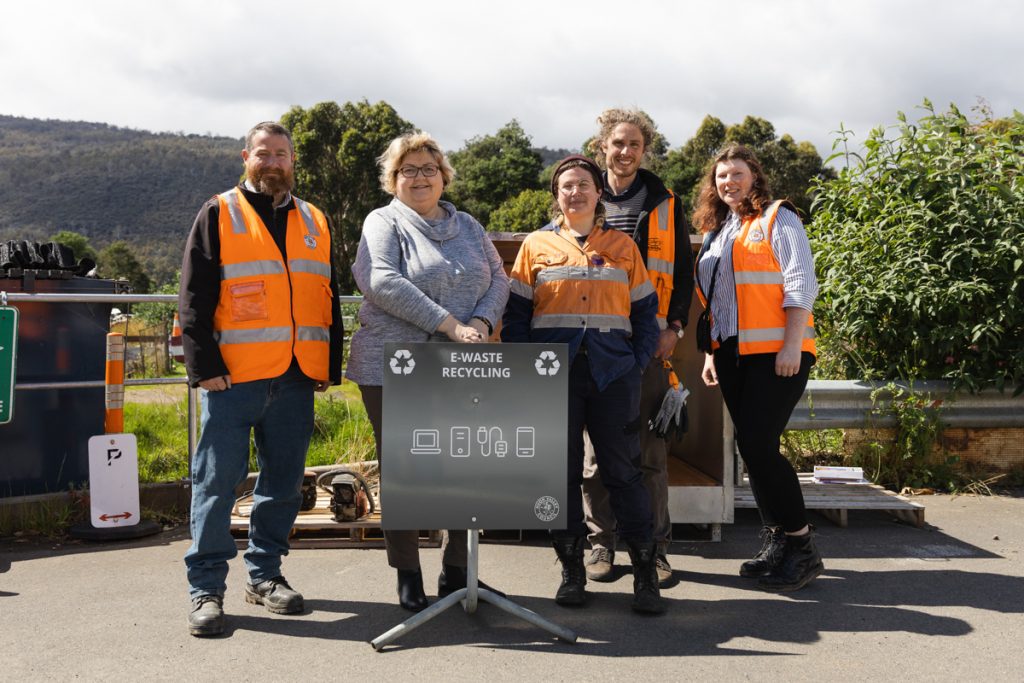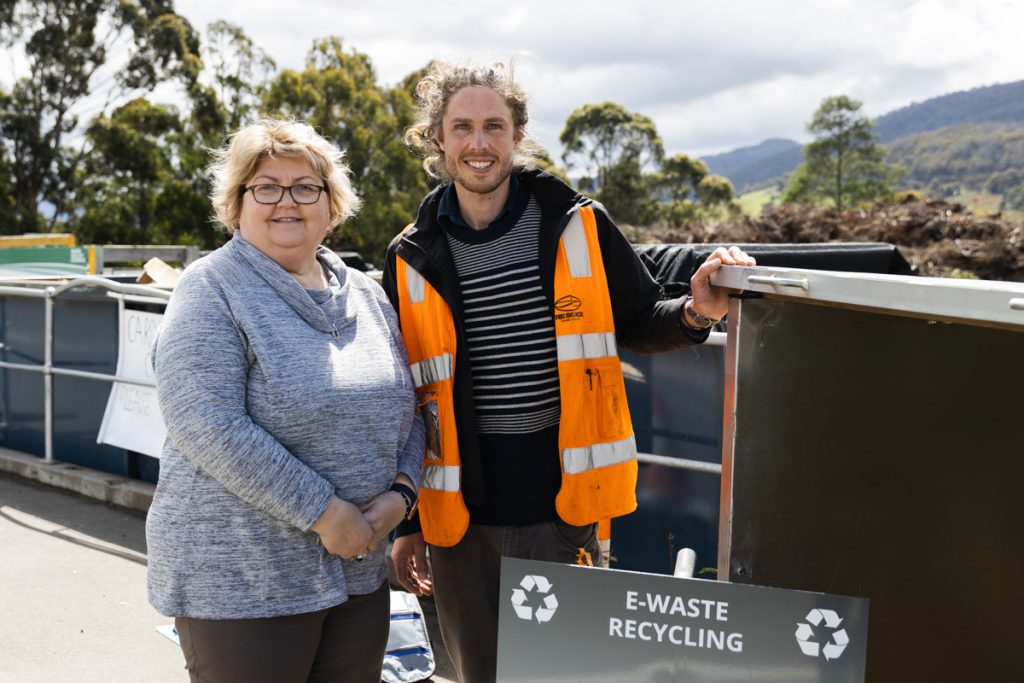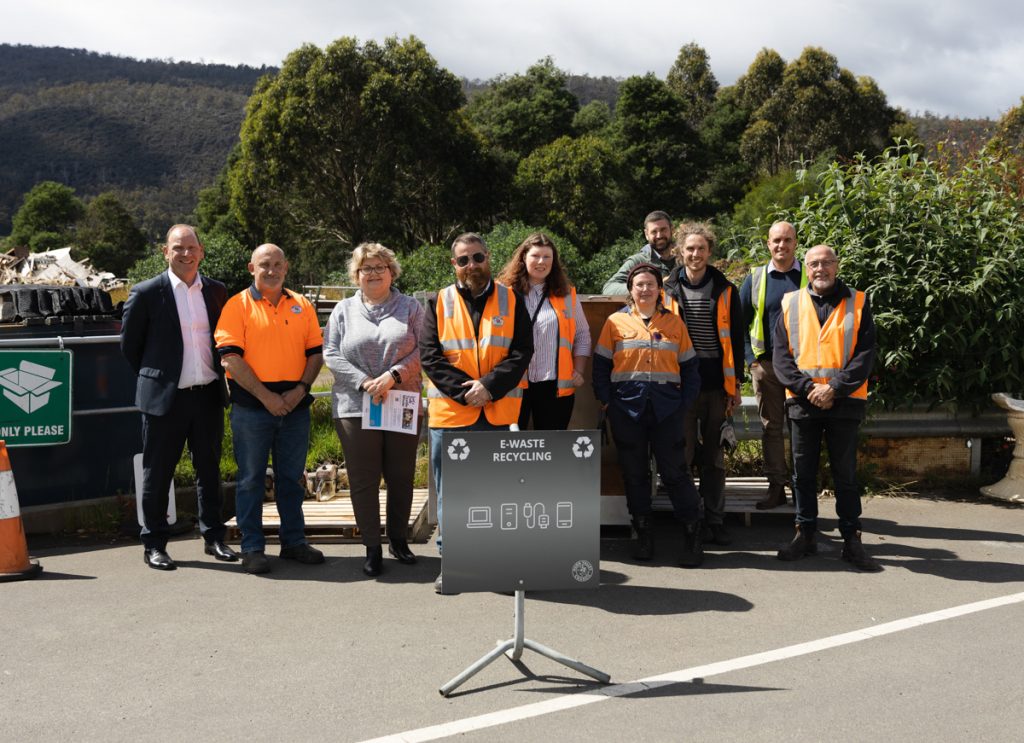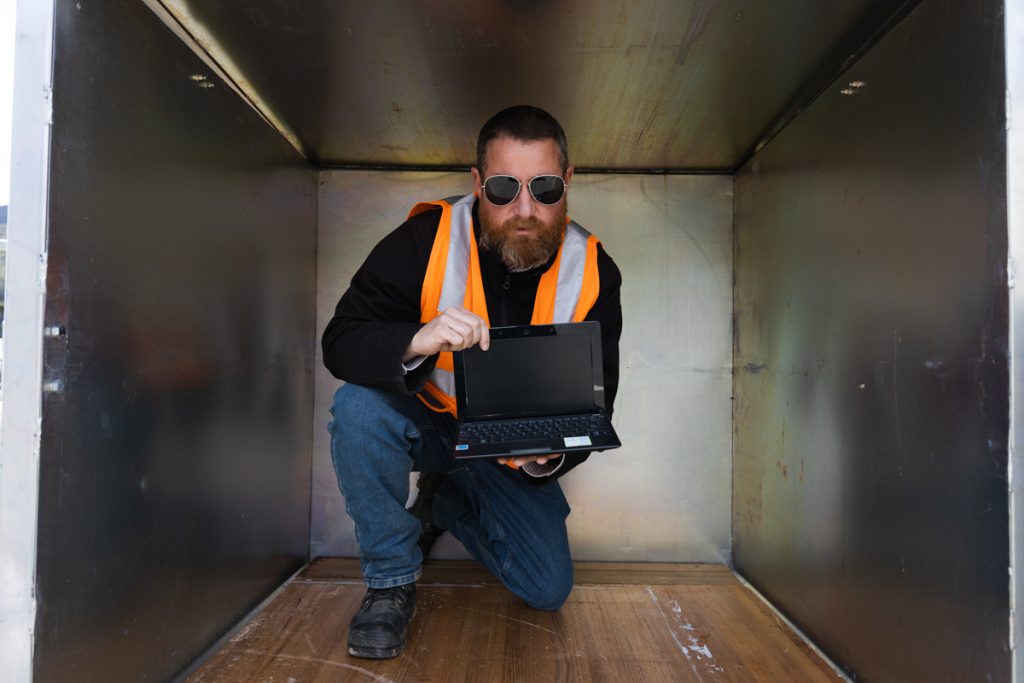
With electronic waste growing three times faster than any other waste stream, the Huon Valley Council has partnered with the South Hobart Tip Shop’s Resource Work Cooperative to offer e-waste recycling services to its residents.
Supporting the creation of a circular economy and a sustainable society is behind council’s initiative to introduce a reliable system of e-waste management, Mayor Sally Doyle said.
The total amount of electric and electronic equipment the world uses grows by 2.5 million tonnes each year.
“Unfortunately, the total amount of e-waste being generated is increasing a lot faster than the amount being collected and recycled. So, it’s important that we do as much as we can to increase collection and recycling of electronic waste,” Mayor Doyle said.
Council will be accepting the following e-waste items: mobile phones, tablets, laptops, desktop computer towers, loose computer parts, all types of cable and power tools.
Lyle Ground, Manager Environmental Services, said the e-waste service is linked to one of the actions set out in council’s Waste Avoidance and Resource Recovery Strategy 2022-2025.
“Recycling e-waste is a form of resource recovery, which is a key component of best practice waste management, aligning with the principles of the waste hierarchy and the circular economy.”
Mayor Doyle said the partnership formed with the South Hobart Tip Shop’s Resource Work Cooperative has allowed council to offer the e-waste service to its residents.
The Resource Work Cooperative, Australia’s largest Not-For-Profit worker owned cooperative, work to promote waste minimisation in the community and minimise waste.
“The cooperative is a team of people who have the knowledge and skills to refurbish old electronic items such as computers. For computers that are at the end of their life, it is possible for them to retrieve the precious metals and other parts that can be recycled,” Acting Mayor Doyle said.
Mr Ground said there are many valuable and useful materials that can be recovered from e-waste such as gold, silver, copper, aluminum, glass, and plastics.
“The environmental benefits of recycling e-waste include reducing demand for virgin materials and preventing toxic hazards resulting from lead and mercury entering the environment.”
Mayor Doyle said recycling e-waste also has strong economic benefits.
“The price of landfilling is the highest it has ever been and is set to continue to climb with the staggered Tasmanian Landfill Levy now in effect.
“The recycling of e-waste also keeps materials circulating in the economy rather than being lost to landfills, which improves resource availability and creates jobs.
“For these environmental and economic reasons, we urge community members to avoid, reduce, reuse, and recycle their waste.”


